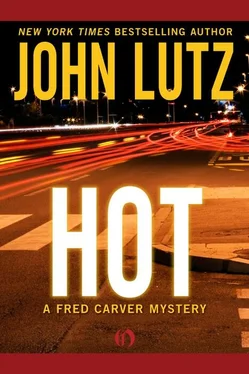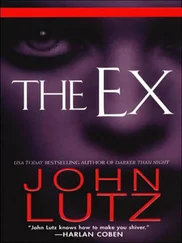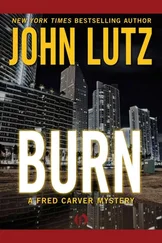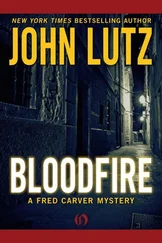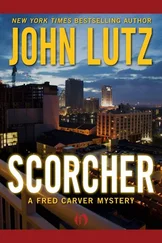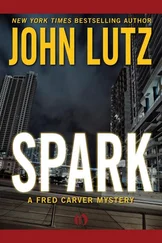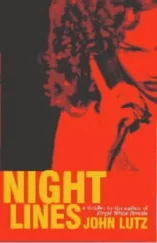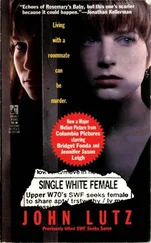John Lutz - Hot
Здесь есть возможность читать онлайн «John Lutz - Hot» весь текст электронной книги совершенно бесплатно (целиком полную версию без сокращений). В некоторых случаях можно слушать аудио, скачать через торрент в формате fb2 и присутствует краткое содержание. Жанр: Криминальный детектив, на английском языке. Описание произведения, (предисловие) а так же отзывы посетителей доступны на портале библиотеки ЛибКат.
- Название:Hot
- Автор:
- Жанр:
- Год:неизвестен
- ISBN:нет данных
- Рейтинг книги:4 / 5. Голосов: 1
-
Избранное:Добавить в избранное
- Отзывы:
-
Ваша оценка:
- 80
- 1
- 2
- 3
- 4
- 5
Hot: краткое содержание, описание и аннотация
Предлагаем к чтению аннотацию, описание, краткое содержание или предисловие (зависит от того, что написал сам автор книги «Hot»). Если вы не нашли необходимую информацию о книге — напишите в комментариях, мы постараемся отыскать её.
Hot — читать онлайн бесплатно полную книгу (весь текст) целиком
Ниже представлен текст книги, разбитый по страницам. Система сохранения места последней прочитанной страницы, позволяет с удобством читать онлайн бесплатно книгу «Hot», без необходимости каждый раз заново искать на чём Вы остановились. Поставьте закладку, и сможете в любой момент перейти на страницу, на которой закончили чтение.
Интервал:
Закладка:
“Effie told me you sneaked over and looked in the van one day when Davy was inside at the register.”
“Yeah.” Bobby continued working while he talked. “After she talked to me”- Ssst! -“I got curious, figured what the heck. So when I saw there was four people waiting to pay in front of Davy, I kept the number-five pump between me and him in case he happened to look outside, and I got around the other side of the van and got my nose right up to a window.” Ssst! Ssst! “Couldn’t see much, though. It was a bright day, and those windows are tinted so dark it’s hard to see inside.” Again he made the motion with his arm, as if half-heartedly pointing. “Just the rug and the big wood box, like Effie told you.”
“Better not try anything like that again,” Carver said. “Davy’s a rough man with rough friends.”
“Effie told me that. I ain’t scared, but don’t worry. She said you didn’t want me or her nosin’ around any of them Key Montaigne people. She was plain on that.”
Carver was pleased Effie had delivered the message.
The crankcase was finished draining. Bobby laid down the lube gun, wiped his hands on his thighs, and went over to replace the drain plug.
“When was the last time you saw Davy gassing up the van?” Carver asked.
“You mean before today?”
Carver’s grip tightened on his cane. “Davy was in here today?”
“Not was,” Bobby said, “he’s inside payin’ Linda now.” He motioned with his arm again. “Hey, I thought you knew that.”
This time Carver looked in the direction of the arm movement and saw the back of Davy’s van at the far side of the lot. There were no other cars within fifty feet.
“Thanks, Bobby,” he said. “Don’t mention I was by and we talked, okay?”
“Don’t worry about that,” Bobby said, deftly screwing in the drain plug with blackened fingers. A dark rivulet ran down the back of his hand.
Careful not to place the tip of his cane on grease or oil, Carver left the service bay and got back in the Olds. He started the engine and switched on the air conditioner. The vents pulled in the sweet rotting stench of whatever was in the Dumpster.
A few minutes later Davy emerged from the square brick building, swaggered to his van and climbed inside. The van rolled slowly to the exit drive and stopped. When there was a break in traffic, it pulled out onto Route 1 and turned north.
Carver waited until another few cars had passed, then followed the van, figuring, Back to Miami. The thought made his burned nose hurt.
Not Miami this time, though.
Davy didn’t even leave Marathon Key. Half a mile from the station, he pulled off the highway and parked in front of a low clapboard building with a sign that said: bait, beer, boats.
Carver stopped on the gravel shoulder and watched.
Davy got out of the van, puffed out his chest and tucked in his sleeveless T-shirt. He didn’t enter the building. Instead he walked around it, underneath a thick cedar trellis enmeshed in vines with pink blossoms.
Carver shifted the Olds to Drive and let its idling engine roll him closer. He guided the car into the lot of a souvenir shop, found a parking slot between two other cars so the Olds wouldn’t be noticeable, then braced himself for the glare and heat of the sun and climbed out. The Olds was angled nose toward the shop, its rusty rear bumper only a few feet from the highway.
The tumultuous hot wind in the wake of a speeding eighteen-wheeler almost bowled him over. He saved himself from falling by instinctively stabbing the ground with the cane. Better keep an eye out for those bastards, he cautioned himself, watching the square back of the trailer glimmer and grow smaller in the vaporous heat of the highway. His bald pate felt ready to burst into flames in the relentless sun, his nose was throbbing now, and already he could feel the thin leather soles of his moccasins warming. He was truly miserable, and for a second wondered how he’d come to be here. What an occupation, he thought. What a world. What a life. What was the purpose of it all, really?
No answer sprang to mind.
He limped over baked gravel toward the place that specialized in bait, beer, boats.
37
When he got closer to the low clapboard building, Carver saw that a smaller sign above the door proclaimed it to be zig’s fisherman’s lounge. He walked along an uneven stone walk that ran outside the building, and found that it led to a patio with some tables and chairs outside.
A faded green canvas awning supported by a rusty iron framework provided shade, but this was the void between breakfast and lunch, and no one was at any of the tables other than a few gulls pecking disdainfully at crumbs. At the far corner of the building a gaunt teenage boy stood shirtless in the sun, holding a garden hose and directing a meager stream of water on something beyond Carver’s view. He seemed uninterested in his task as he absently bent to drink from the hose, then wiped a skinny bare arm across his perspiring forehead. A weathered wooden sign pointed the way to the dock, down a narrow dirt path that cut through tall grass, untended bushes that had once been a garden, and wind-gnarled date palms. Carver set the tip of his cane on the hard earth and began walking.
Within a few minutes he could see the ocean. There was a rickety dock, and a sloping concrete ramp where trailered boats might be put in the water. A gravel road ran parallel to the shore, then curved out of sight with the angle of the land.
Half a dozen open fishing boats with outboard motors bobbed at the dock. A pelican sat unconcernedly on the bow of one of them. The only person in view was Davy, standing on the sunny dock with his hands on his hips and gazing out to sea. About half a mile from shore a boat rode the glimmering ocean. Carver could see two men in it, unmoving as a sculpture, two fishing poles like jutting antennae. Beyond the boat, on the horizon, dense clouds were layered to a majestic altitude, more a mockery than a promise of rain.
He moved off the path and behind some bushes with huge pink blossoms that gave off an acrid, unpleasant scent. Leaned on his cane and watched.
The wavering drone of an outboard motor became audible through the clear morning air, and an open boat came into view. It was moving fast, skipping along the surface so the prop was clear occasionally and the motor snarled free of the water’s drag. One man sat in it, hunched over the outboard in the stern, his neck craned as he twisted his body so he could see above the raised bow.
The V of white wake disappeared as the motor coughed and settled into a determined sputtering, and the boat veered toward shore. There was a muted thumping as its gray aluminum hull settled against the tires lashed to the dock as buffers, and the man in the stern cut the motor and scrambled forward to loop a rope over a cleat and secure the boat. The pelican had seen enough and flapped away.
Davy dropped his hands to his sides and stood without moving. A waiting attitude touched with impatience. For the first time Carver saw something familiar about the man in the boat. He leaned forward over his cane.
After clambering from the boat, the man made his way along the dock to where Davy stood. He was wearing khaki shorts and a loose-fitting red and gray striped pullover shirt, a white baseball cap with an oversized bill. He needed a shave badly, or he was cultivating a beard. As he shook hands with Davy, Carver realized he was looking at Frank Everman.
The two men stood talking in the sun for a few minutes, then Davy drew a brown envelope from beneath his shirt and handed it to Everman. Everman opened the flap and looked inside, then he began thumbing through a thick stack of green bills, counting them with the brisk efficiency of a bank teller. Halfway through the bills he stopped and shrugged. He grinned at Davy, who was staring at him without expression.
Читать дальшеИнтервал:
Закладка:
Похожие книги на «Hot»
Представляем Вашему вниманию похожие книги на «Hot» списком для выбора. Мы отобрали схожую по названию и смыслу литературу в надежде предоставить читателям больше вариантов отыскать новые, интересные, ещё непрочитанные произведения.
Обсуждение, отзывы о книге «Hot» и просто собственные мнения читателей. Оставьте ваши комментарии, напишите, что Вы думаете о произведении, его смысле или главных героях. Укажите что конкретно понравилось, а что нет, и почему Вы так считаете.
